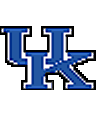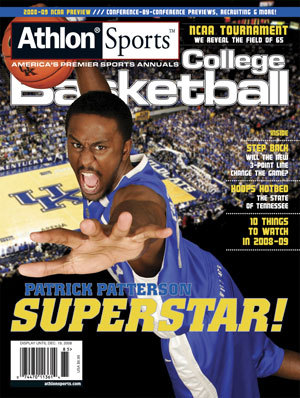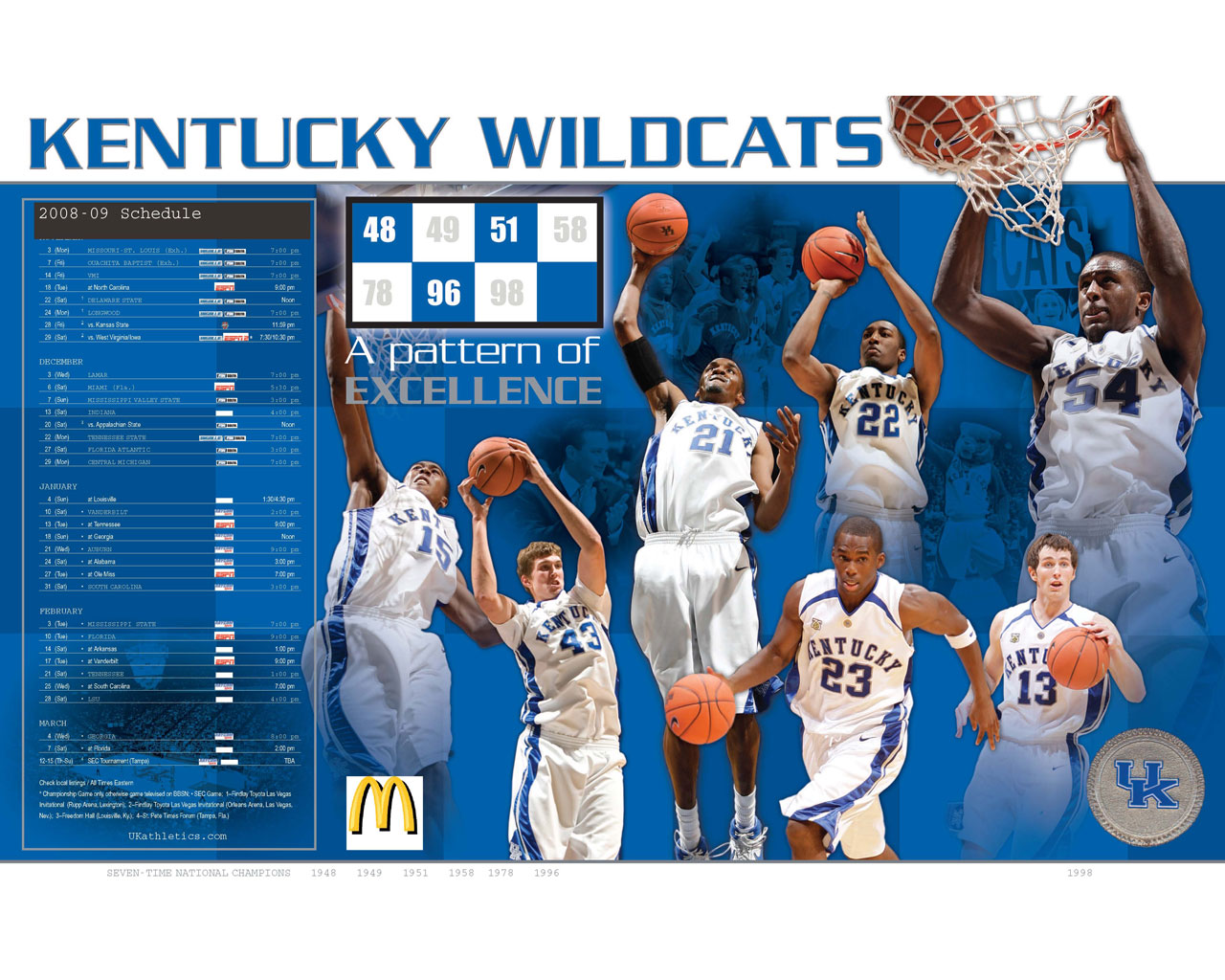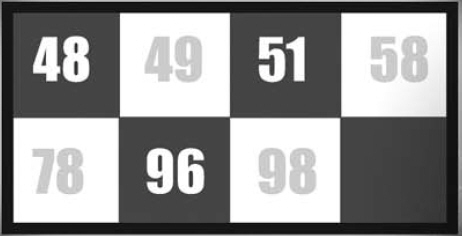BIG BLUE FANS FOR

BASKETBALL
2008-09 Season Analytical Writings
01
10 Weeks Until Big Blue Madness
For 2008-09 Season

As summer wears through the dog days of August, my thoughts invariably turn to what might be this coming winter with the UK Basketball team. Without a doubt, my view ahead for the 2008-09 basketball season is tinted in beautiful shades of blue and I make no apologies for my unabashed optimism for Billy Gillispie's second team. First, Coach Gillispie has a record of accomplishment that includes notable turnarounds with dismal programs at UTEP and TAMU, and second, this second Gillispie led group of Wildcats will not look or feel anything like his first group.
No one can accuse Coach Gillispie of ever criticizing his first Wildcat team. In fact, he was that team's greatest booster and supporter, especially during November and December when lesser men than Coach Gillispie would have submitted to the temptation to point fingers of blame toward some of his players, and to a harsh set of circumstances that the Basketball Gods had laid on his plate. However, not once did Coach Gillispie blame a single one of his players for any of the team's misfortune; rather Coach Gillispie heaped each of his players with lavish public praise.
It has been many years since I have felt this level of anticipation for the upcoming basketball season. I guess I would return to the mid to late 90s to find the pre-season excitement I am feeling this August. Therefore, the predictions and projections that follow in this initial writing about the 2008-09 season reflect that excitement, and many will undoubtedly comment that these predictions are overly ambitious, and not justified by the facts on the ground.
I plead guilty to this exuberance!!! If this team fails to "measure up" to my expectations, the world will not end, and I will acknowledge that errors of my way, but until then, this is my story, and I am sticking to it.
The University of Kentucky Basketball Schedule for the 2008-09 season includes 15 non-conference and 16 SEC games for the regular season. The schedule includes the usual traditional games with Indiana [At Rupp], North Carolina [At Chapel Hill], and Louisville [At Louisville]. However, unlike the tradition of these games on the first three Saturdays of December, this year sees these three games completely split, with the Cats traveling to Chapel Hill on November 18, 2008, and to Freedom Hall to take on the Cardinals on January 4, 2009. Indiana remains in its traditional early December slot on the schedule. The remaining 12 non-conference schedule includes Virginia Military, Delaware State, Longwood, Lamar, Miami [Fl], Mississippi Valley State, Tennessee State, Florida Atlantic, and Central Michigan at Rupp Arena, Appalachian State in the annual Freedom Hall "home" game, and Kansas State and either West Virginia or Iowa on neutral courts in Las Vegas in November. That is 10 games at Rupp, 2 games on the opponents home court, and three games at neutral locations.
The SEC schedule again begins with Vanderbilt at Rupp Arena followed by four of the next five games on the road game in Knoxville on January 13, 2009. This will provide a very early test for this young group of Cats, but also a very early opportunity to separate themselves from the rest of the SEC pack with several important SEC road victories. The Cats need to hold serve at Rupp and win 3 of these first 4 road games to start 5-1 in the Conference. The next 6 game sequence includes 4 at Rupp, with difficult road games at Arkansas and Vanderbilt sandwiched between home dates with Florida and Tennessee. This 4 game sequence may be the most important of the 2009 season for the Cats, needing to win at least 3 of these games, to finish the first 12 games at 10-2. The Cats wrap up the 2009 SEC season at South Carolina, entertaining LSU and Georgia at home, and then the last game at Gainesville, Florida.
Our starting point for this analysis must be the efficiencies that the Cats posted during the 2007-08 season. Gone from last year's team are Ramel Bradley, and Joe Crawford to graduation, and Mike Williams, Mark Coury and Derrick Jasper to Transfer. New comers include Freshmen Darius Miller, DeAndre Liggins, JUCO transfers Harrellson [Sophomore] and Galloway [Junior], and conventional transfer Pilgrim [Red shirt Year]. Returning players include Carter [Senior], Juniors Meeks, Harris, Stevenson and Porter, and Sophomores Stewart and Patterson.
Last season's team ended the year with a Net Game Efficiency [NGE] of 0.070 points per possession. As a point of reference, my data and analysis over recent years indicates that teams that post a NGE of 0.140 ppp or higher are legitimate NCAA elite 8 quality and 0.180 ppp or higher to compete for final four berths. Teams with a NGE of 0.200 ppp or high are legitimate contenders for the national championship. UK's 0.070 ppp last year was not even close to the levels necessary for deep NCAA Tournament runs.
The 2007-08 Cats fought two very serious deficiencies throughout the season: Turnovers and Rebounding. The 2008-09 success will depend in large measure upon returning performance levels in both of these areas to levels that represent the average for UK teams over the last 37 years OR BETTER!!!!
Last year's team turned the ball over at the highest frequency of any team at UK since TO records have been maintained and reported. Last year, the Cats committed one turnover for each 4.85 possessions. The lowest [highest frequency] before last year occurred in 5.07 possessions per TO in 1983. Rupp's last team committed one TO for every 6.46 possessions. The best turnover ratio since 1972 was 6.71 by Pitino's first team. Regardless of how many TO/game they averaged, their pace was so fast that their TO ratio was the best since 1972.
Pitino's number ranged from 6.71 [1990] to 5.76 [1993] and averaged 6.15 possessions per TO for 8 years. Tubby's best was 6.21 in 2005 and his worst was 5.46 in 2000. Tubby's 10 teams averaged 1 TO for each 5.80 possessions.
Since 1972, UK's 37 teams have averaged one TO for every 5.85 possessions.
This season, IMO, the bench mark should be the 37 year average TO rate, and the team should meet or exceed that criteria to show the improvement in that area of the game.
At 85 possessions per game, that would produce 17.5 TOs per game, while an 85 possession game at 5.85 possessions per TO would produce an average of 14.5 TOs per game. That 3 TO improvement adds over 3 ppg to the offensive output.
The same analysis of the UK Defense's forcing of TOs. Last year, the Cats forced turnovers for every 6.06 opponent possessions. While not the worst UK defensive performance, it is the fifth worst since 1972. The other four are:
1981 8.69
1982 8.29
1983 6.11, and
2007 6.28
The UK average defensive TO rate has been 5.38 possessions per TO, and Pitino's teams produced results ranging from 4.85 [1993] to 3.88 [2007] with an 8 year average of 4.45 possessions per TO. Tubby's 10 teams ranged from the aforementioned 6.28 [2007] to 4.60 [2005] with a 10-year average of 5.32.
IMO, the UK average, 5.38 possessions per opponent TO should provide the immediate criteria for the 2009 team, and if it improves from last year's 6.06 to 5.38, the forced turnovers will change from 14.0 TO/game last year to 15.8 TO/game this year.
That increase of nearly two TO's per game will decrease opponent scoring by about two ppg.
The turnover issue alone will produce a swing in the average margin of about five ppg, or add about 0.059 ppp to the NGE. That change alone can increase the NGE from last season's 0.07 ppp to about 0.129 ppp.
Remembering that the target for Elite 8 quality of play is 0.14 ppp, the Turnover issue alone is a critical one for this degree of improvement.
A similar analysis of the team's rebounding results in 2007-08 can demonstrate similar improvements to the NGE by simply reversing the fact that opponents out performed the Cats on the offensive glass in 2007-08. The NCAA D1 average offensive rebounding rate is 33%. This means that on average, 1/3 of all missed shots ends with the shooting team getting the ball back for a second chance possession. Last season, the Cats' opponents got 34% of their misses, while the Cats only got about 32% of their misses. At a minimum, the Cats must reverse that relationship in 2008-09, and preferably, the Cats should increase the offensive rebounding efficiency to at least 35% and hold opponents to less than 30%.
Can Billy Clyde Gillispie increase the UK NGE for 08-09 to 0.140 ppp or higher, because that is what he must do for UK to make a serious post season run this coming season. Let us review some recent history. No Tubby Smith Coached UK team posted such lofty NGE values for an entire season. Only the 98 team was able to do so over the course of their last 13 games, the 13 game stretch that propelled UK to #7, and handed Tubby Smith his infamous national championship. However, lest we forget, Derek Anderson had predicted the year before that the 98 team would carry Tubby to that result. Four of Pitino's last five teams posted season long NGE values of 0.160 ppp or greater. 93-0.165 ppp; 95-0.173 ppp; 96-0.203 ppp; and 97-0.201 ppp.
So how did Pitino achieve these results? The answer is obvious, but cannot be stated often enough. He did it with efficient offense and efficient defense. It will never be sufficient to have one without the other.
DEFENSE:
The defensive efficiency for Pitino's last 5 teams averaged 0.761 ppp. Last season's defensive efficiency was only 0.82 ppp. Therefore, for UK to return to the national stage, they must improve their defensive efficiency by a significant amount. In my opinion, the 09 defensive efficiency must be below 0.780 ppp to distinguish itself as one of the better UK defensive teams of the last 30 years. As a point of reference, the 96 and 97 teams posted defensive efficiencies of 0.749 ppp and 0.715 ppp respectively, and the 95 team was not too shabby, at 0.758 ppp. These are defensive performances worthy of note, but it may be too much to expect that Coach Gillispie will have that level of impact in year 2 of his tenure, coming off the 0.82 ppp 2008 season. However, last year's A&M team posted a defensive efficiency of 0.741 ppp, so we know that Coach Gillispie can and has coached defensive basketball at these championship levels.
OFFENSE:
The offensive efficiency for Pitino's last 5 teams averaged 0.937 ppp. Tubby only had one team that posted an offensive average this good [03-0.935 ppp] and over his 10-years at UK, Tubby's teams only averaged 0.902 ppp on offense Last season's offensive efficiency was only 0.89 ppp. Therefore, for UK to return to the national stage, they must improve their offensive efficiency by a significant amount. In my opinion, the 2009 offensive efficiency must be above 0.920 ppp, and if it is above 0.950 ppp, this will be one of the better UK offensive teams of the last 30 years. As a point of reference, Pitino's most efficient offensive groups were 92-0.961 ppp; 93-0.954 ppp; and 96-0.953 ppp. These are offensive performances worthy of note. In my opinion, an offensive efficiency of 0.920 to 0.940 is achievable this season, but it may be too much to expect an offensive efficiency greater than 0.950 ppp during Billy Clyde Gillispie's second year, coming off the 0.89 ppp performance in 2008. Coach Gillisipie's A&M team posted an offensive efficiency of 0.933 ppp, and I do not know if any Billy Clyde Gillispie coached team has ever posted an offensive efficiency above the 0.950 ppp threshold.
NET GAME EFFICIENCY:
As you now understand, the NGE is the arithmetic difference between the offensive and defensive efficiencies. NGE is a normalized measure of average victory [or loss when NGE is negative] margin. Here are some combinations of offensive and defensive efficiencies that could achieve a NGE of 0.140 ppp, the first key performance threshold that merits serious Elite 8 competitiveness.
OFF EFF DEF EFF
0.930 ppp 0.790 ppp
0.920 ppp 0.780 ppp
0.910 ppp 0.770 ppp
Similarly, here are some combinations of offensive and defensive performances that reach the ultimate goal, 0.200 ppp or higher:
OFF EFF DEF EFF
0.970 ppp 0.770 ppp
0.960 ppp 0.760 ppp
0.950 ppp 0.750 ppp
0.940 ppp 0.740 ppp
0.930 ppp 0.730 ppp
Kentucky once performed at these lofty levels on a regular basis. Each season, only a handful of teams post numbers at these levels for an entire season. To be elite means doing just that.
In my opinion, the biggest single impact of Tubby Smith's time here was a lowering of expectations to the extent that few UK fans regard these elite performances as possible any longer. But they are possible, and they are achieved each year by some teams. I want UK to return to that elite list as soon as possible.
Using the separate offensive and defensive analyses provided above as a benchmark, this coming year may see a UK NGE in the range of 0.140 ppp [Off Eff: 0.930 ppp; Def Eff: 0.790 ppp]. That will be equivalent to the performance posted by the 03 team, for perspective. Anything above 0.140 ppp for the 08 season will be a wonderful surprise, despite all the great things in store for UK under Billy Clyde Gillispie's leadership. It took Pitino 4 years to exceed this modest threshold [93-0.165 ppp], and I expect the 08 group will have a season more like the 92 season than the 93 season, making 0.140 ppp an achievable, but difficult goal.
WINNING PERCENTAGE AS FUNCTION OF NGE:
Historically, there is a statistically significant relationship between the season NGE and the season winning percentage. A NGE of 0.140 ppp corresponds to a winning percentage of about 82 percent [with some scatter of course], and for a 31 game season, that corresponds to about 25-6 regular season. Based on the scatter in the data, that level of performance could be as good as 26-5 and as bad as 24-7. Therefore, as I approach this season, this range will form my initial standards for comparison of actual results.
I remain convinced that Coach Gillispie has reversed the downward sliding by bringing a real coaching philosophy back to UK, and Coach Gillispie has already stopped the hemorrhaging simply by doing some real recruiting.
What a concept.
PREDICTED 2008-09 RECORD:
Non-Conference: 13-2 [Losses at UNC and Louisville]
SEC: 13-3 [Losses at Tennessee, Florida, and one other road game] SEC Regular Season Champions
SEC Tournament: 3-0 [SEC Tournament Champions]
NCAA Tournament: 3-1 [NCAA Elite 8 Loss]
32-6


Submitted by Richard Cheeks
Copyright 2008
SugarHill Communications of Kentucky
All Rights Reserved